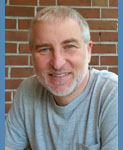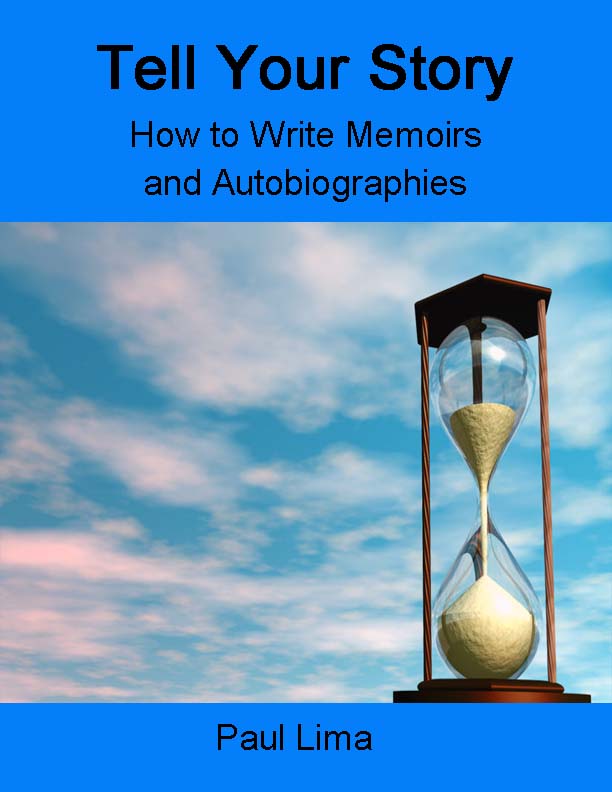 |
PaulLima.com
|
|
Tell
Your Story Introduction to Tell Your Story I’ve done it. I’ve written my memoir, The Accidental Writer. It contains sex. It contains violence (a bit). It contains writing. And there is more in the book that happened more or less by accident in my life -- like how I became an accidental dad and accidental dog lover. As the author, I am biased, but I feel I’ve produced an entertaining and engaging book -- a fun read with serious overtones. I had a blast writing it and feel that anybody over 50 should write their memoir, as I told a writer I know. He said something that got me thinking. He said, “My memoir would be as boring as watching paint dry.” (Yes, writers are allowed to use clichés.) My reply was immediate: “When writing your memoir, or your autobiography, you leave the boring bits out!” In other words, you are not writing everything that ever happened to you. If I were to write a truly comprehensive autobiography even I, the writer, would fall asleep before I finished writing chapter one. With that in mind, the first thing you need to decide is what you a going to write: a memoir or autobiography. Also, figure out why you are going to write it, what you are going to include (and leave out) and who you are going to write it for. For instance, my memoir, while of interest to family and friends, is aimed at other writers. They would be the ones most interested in how I became a writer, even though I became one accidentally. That is why this book will help you determine what you should write, why you should write it and who you should write it for. It will also help you conduct internal research -- research into you -- and get down on paper all that you might want to include in your book. In fact, it will help you discover more about yourself than you will want to include in your book. And that, as any writer will tell you, is a good place to be -- with more information in front of you than you need to write about. Then the book will help you get focused and organized. You will outline the chapters you want to write and create an outline for each chapter. As a professional writer for 40 years, and one with twenty-two books to my name, I can tell you that once I have a detailed outline in front of me, it's all over but the writing. And that is a point anybody writing anything wants to be at before actually writing. It's just that people who are new to writing don't know that they want their book to be all over but the writing before they begin to write. Then there will be a bit about actual writing too. And in conclusion, there will be a final section on self-publishing -- something more and more people are doing to get their books out there. Unlike many other self-help books, Tell Your Story makes no outlandish promises of riches or mega-success, other than to say that you will produce a solid first draft of your book if you follow that process outlined here and devote a couple of hours a day to the process of writing your book. If
you feel like you've been spinning your wheels, this book will get you
grounded and focused. It will show you how to turn who you are into a
book about you, which is what I presume you want to do because you have
purchased a book entitled Tell Your Story. |
Contents
Introduction
1 / Memoir versus Autobiography 2 / The Writing Process 3 / Before You Start 4 / Structure of Memoir/Autobiography 5 / Initial Story Research 6 / What Is A Book? 7 / Pre-Writing Exercises 8 / Brainstorming and Clustering 9 / Preparation 10 / Research 11 / Initial Clustering 12 / Focused Clustering 13 / Outlining Your Book 14 / Continuing to Outline 15 / Writing and Editing 16 / Sentences and Paragraphs 17 / A Tale of Self-Publishing About the Author
Other books by Paul Lima
|
-
*
Multiple Sclerosis
and New Daily Persistent Headache
